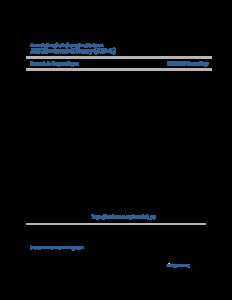|
Towards an understanding of conspiracy echo chambers on Facebook
Risius, Marten
;
Aydinguel, Okan
;
Haug, Maximilian
![[img]](https://madoc.bib.uni-mannheim.de/51061/1.hassmallThumbnailVersion/TOWARDS%20AN%20UNDERSTANDING%20OF%20%20CONSPIRACY%20ECHO%20CHAMBERS%20ON%20FACEBOOK.pdf)  Vorschau |
|
PDF
TOWARDS AN UNDERSTANDING OF CONSPIRACY ECHO CHAMBERS ON FACEBOOK.pdf
- Veröffentlichte Version
Download (865kB)
|
|
URL:
|
https://madoc.bib.uni-mannheim.de/51061
|
|
Weitere URL:
|
https://aisel.aisnet.org/ecis2019_rip/36/
|
|
URN:
|
urn:nbn:de:bsz:180-madoc-510616
|
|
Dokumenttyp:
|
Konferenzveröffentlichung
|
|
Erscheinungsjahr:
|
2019
|
|
Buchtitel:
|
27th European Conference on Information Systems - Information Systems for a Sharing Society, ECIS 2019, Stockholm and Uppsala, Sweden, June 8-14, 2019
|
|
Seitenbereich:
|
Paper 36
|
|
Veranstaltungstitel:
|
ECIS 2019
|
|
Veranstaltungsort:
|
Stockholm & Uppsala, Sweden
|
|
Veranstaltungsdatum:
|
08.-14.06.2019
|
|
Herausgeber:
|
Johannesson, Paul
|
|
Ort der Veröffentlichung:
|
Atlanta, GA
|
|
Verlag:
|
AISeL
|
|
ISBN:
|
978-1-7336325-0-8
|
|
Sprache der Veröffentlichung:
|
Englisch
|
|
Einrichtung:
|
Fakultät für Betriebswirtschaftslehre > ABWL u. Wirtschaftsinformatik I (Heinzl 2002-)
|
|
Fachgebiet:
|
004 Informatik
300 Sozialwissenschaften, Soziologie, Anthropologie
330 Wirtschaft
|
|
Abstract:
|
Selective online exposure to information that serves to only affirm people’s opinions or is strongly aligned with their interests is considered to be a major issue in modern societies. Echo chambers, for example, are online environments in which users are only exposed to confirming opinions and alternative voices are excluded or discredited. Echo chambers are considered to be particularly dangerous, because they may lead to polarization and even radicalization. Social media facilitate the formation of echo chambers as described in the Social Identity Theory by means of homophily and depersonalization. This can be especially harmful in the case of conspiracy beliefs, where particularly extreme opinions lead to a stronger seclusion from society, encourage socially destructive actions, and curate Fake News. In our research we will assess different echo chambers in terms of actively established common patterns of consumed online information sources. To that end, we analyse the news source Likes from over 7,000 users with their approximately 1,450,000 Likes on Facebook. We intend to identify different types of Facebook echo chambers with a focus on conspiracy groups, understand distinguishing characteristics in communicative behaviour of the conspiracy groups on Facebook and explore unique characteristics of users in conspiracy echo chambers.
|
 | Dieser Eintrag ist Teil der Universitätsbibliographie. |
 | Das Dokument wird vom Publikationsserver der Universitätsbibliothek Mannheim bereitgestellt. |
 Suche Autoren in Suche Autoren in
Sie haben einen Fehler gefunden? Teilen Sie uns Ihren Korrekturwunsch bitte hier mit: E-Mail
Actions (login required)
 |
Eintrag anzeigen |
|
|



 Suche Autoren in
Suche Autoren in